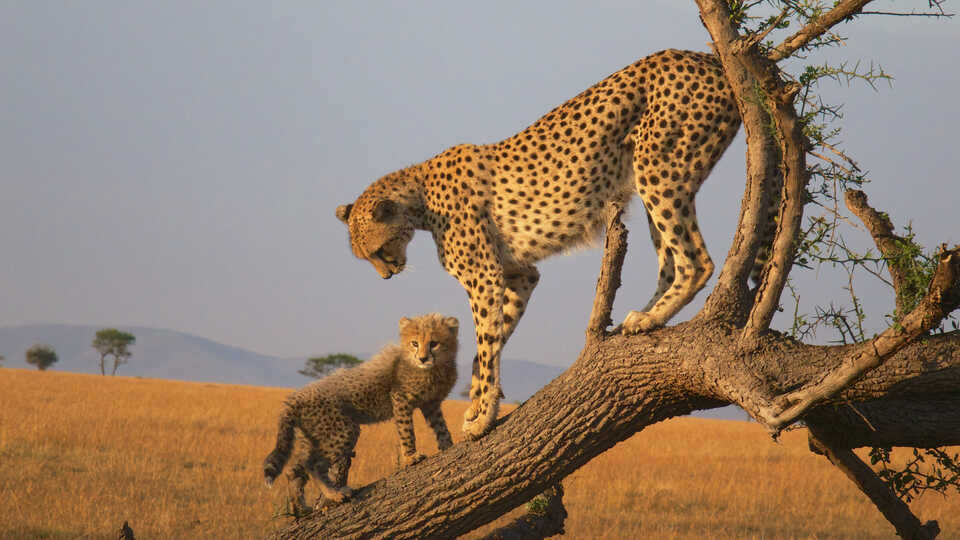Science News
Cheetahs, Farmers, and Dogs

Botswana is one of the more stable countries in Africa. People earn a modest income and the government has been a democracy for decades. Their current president is very eco-friendly and has established laws to protect wildlife. Nonetheless, human threats to wildlife remain a major issue. Rebecca Klein, of Cheetah Conservation Botswana, spoke at this year’s Wildlife Conservation Expo about the tug-of-war between cheetahs and livestock farmers in Botswana.
Cheetahs are one of the most endangered large carnivores in Africa today, Klein says. In 1900, 100,000 cheetahs roamed throughout Africa and into Asia, but, she explains, with habitat loss and human conflict, their numbers have dropped by 90%, with only 10,000 left in the wild today. So we need to take action to make sure these remaining populations exist into the future.
In the Kalahari region of Botswana, there has been a huge expansion in livestock farming recently, Klein says. Part of it is water availability—with underground water and permanent settlements, livestock farms have grown. Many are just outside protected areas, key areas for wildlife, especially a wide ranging species like the cheetah that often roams beyond the borders of a reserve.
But the Kalahari farming communities see the cheetahs as a threat to their livelihoods—and they sometimes kill the cats to protect livestock. So to protect cheetahs, Klein and her team understand that they have to help the farmers. To understand cheetahs’ behavior in the area, the conservationists first studied the movements and the density of cheetahs with transects, satellite collars, camera traps, and local bushmen who know the area well. The team now travels throughout the extensive region to communicate this behavior to the farmers and give the farmers tips on how to co-exist with the animals, including how to build better fences.
Probably the biggest success story for the farmers, conservationists, and cheetahs has been the deployment of guard dogs to the farmers. The team takes and trains puppies—local dogs that are bred or come from rescue centers—and places a sterilized and vaccinated dog with a herd of livestock. There the training continues. The team trains the farming family how to care for the dog. And in return, the presence of the dogs keep the cheetahs away.
Local community representatives check in regularly to see how the dogs are doing and dog-owning farmers get together to share information. The organization also provides free annual vet care for the dogs. The program has been so successful that farmers share the news with their neighbors who in turn ask for dogs of their own. And Klein reports there have been no dog losses since the program started. More than 250 farmers are currently participating.
With protection of their livestock, the farmers are now cheetah conservationists, Klein says, even warning authorities when poachers are in the area.
Image: Ed Yourdon/Flickr